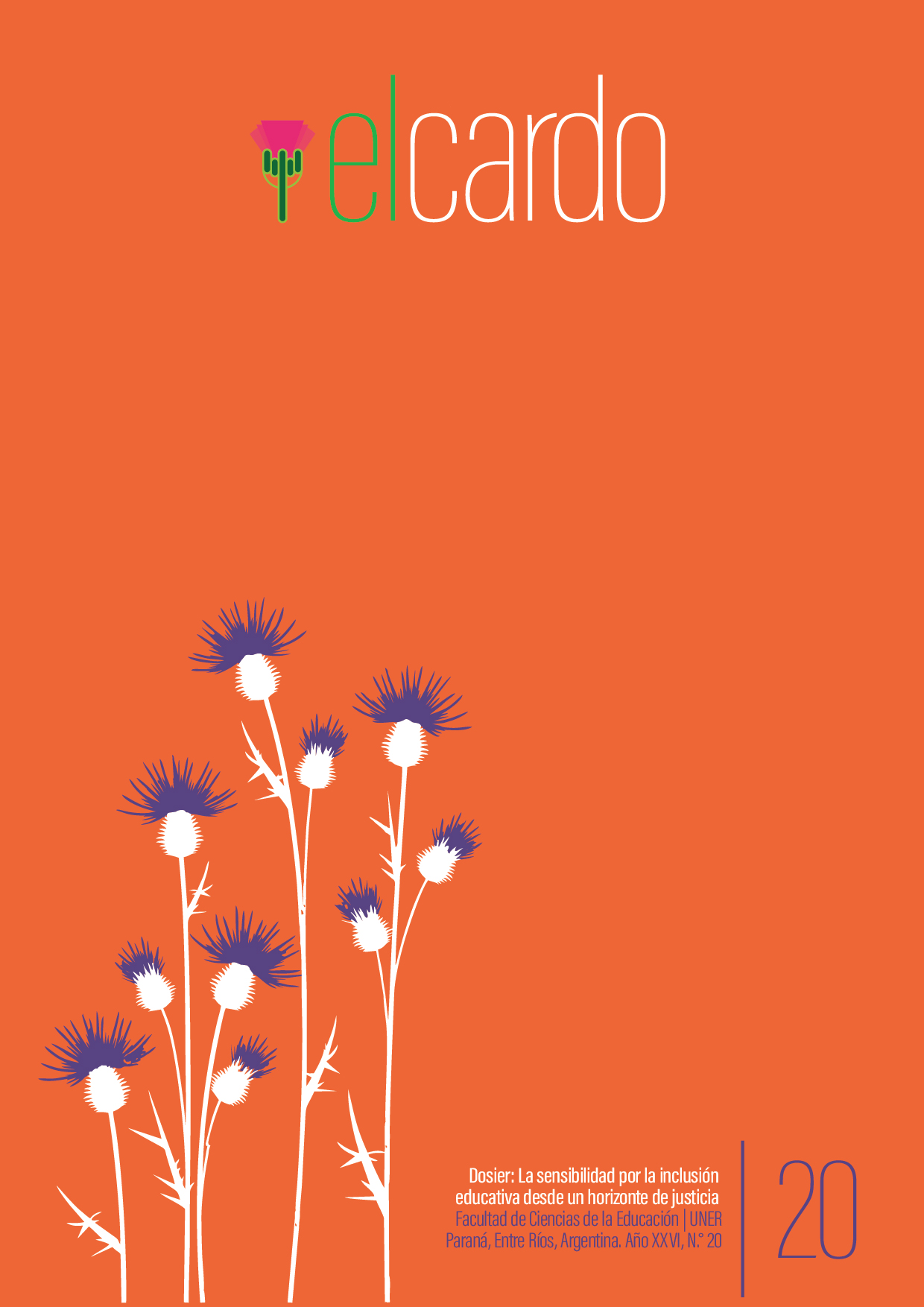Mucho más allá de la regulación emocional: cruce de aportes académicos para reconocer el rol de las culturas afectivas escolares en la justicia social
Contenido principal del artículo
Resumen
El giro afectivo ha dado, en las últimas décadas, lugar e importancia a la comprensión de la dimensión emotiva en los vínculos sociales. El sector escolar empieza a pensar su hacer en este mismo sentido. Como este campo de estudios aún está en construcción, surgen muchas preguntas a la hora de entender la escuela como un escenario para pensar la justicia social desde una perspectiva afectiva.
Este texto intenta cruzar algunas de las preguntas de la escuela, los maestros y las maestras sobre lo emocional reconociendo los aportes de varios autores y, sobre todo, posibilitando la instalación de nuevas preguntas. Para esto se proponen algunas ideas distribuidas en cuatro apartados.
En primer lugar, se reflexiona sobre los fines sociales de la escuela, especialmente la posibilidad de construir espacios para la vinculación con los otros. Posteriormente se exploran algunas ideas sobre lo afectivo y lo emocional como parte de la producción del giro afectivo. Después, se muestran las relaciones y complementariedades entre la justicia curricular y la justicia afectiva. Finalmente se visibiliza y refuerza el rol privilegiado de maestras y maestras en la construcción de una escuela promotora del amor público y del derecho primordial de cuidarnos colectivamente.
Descargas
Detalles del artículo

Esta obra está bajo una licencia internacional Creative Commons Atribución-NoComercial-CompartirIgual 4.0.
Las ediciones no tienen cargos para las y los autores ni para las y los lectores, y se incita a las y los autores a depositar sus contribuciones en otros repositorios institucionales y temáticos, con la certeza de que la cultura y el conocimiento son un bien de todos y para todos. El Cardo permite la reutilización luego de su edición (Post print) citando la autoría y la fuente original de su publicación. Su uso no puede ser con fines comerciales.
Citas
Ahmed, S. (2015). La política cultural de las emociones. Universidad Nacional Autónoma de México.
Alemán, J. (2016). Horizontes neoliberales de la subjetividad. Grama ediciones.
Augé, M. (1993). Los «no lugares» espacios del anonimato. Una antropología de la sobremodernidad. Gedisa
Augé, M. (2012). La comunidad ilusoria. Gedisa
Bauman, Z. (2003). Amor líquido. Acerca de la fragilidad de los vínculos humanos. Fondo de Cultura Económica.
Connell, R. (1997). Escuelas y justicia social. Morata
Dewey, J. (1923). Social purposes in education. General Science Quarterly, VII(2), 79– 9. https://doi.org/10.1002/sce.3730070201.
Echavarría, C. (2003). La escuela: un escenario de formación y socialización para la construcción de identidad moral. Revista Latinoamericana de Ciencias Sociales, Niñez y Juventud, 1(2), 15- 43.
Elias, N. (2008). Sociología fundamental. Gedisa. (Obra original publicada en 1971).
Honneth, A. (1994). La lucha por el reconocimiento. Crítica.
Kaplan, C. (2021). La justicia afectiva en la escuela como horizonte. Educación en movimiento. Segunda época, (4), 10-15.
Kaplan, C. (2022). La afectividad en la escuela. Paidós.
Kaplan, C. V. y Szapu, E. (2020). Conflicto, violencias y emociones en el ámbito educativo. Nosótrica
Le Breton, D. (1999). Antropología del dolor. Seix Barral.
Le Breton, D. (2000). El cuerpo y la educación. Revista Complutense de Educación. 11 (2), 35–42. Le Breton, D. (2005). Las pasiones ordinarias. Antropología de las emociones. Nueva visión.
Meirieu, P. (2013). La opción de educar y la responsabilidad pedagógica. Ministerio de Educación de Argentina.
Nussbaum, M. (2008). Paisajes del pensamiento: la inteligencia de las emociones. Paidós.
Nussbaum, M. (2014). Emociones políticas: ¿Por qué el amor es importante para la justicia? Paidós.
Pestalozzi, J. (2005). Cristóbal y Elsa y ensayos sociopolíticos. Editorial PPU.
Pinedo, I. y Yáñez, J. (2017). Las emociones y la vida moral: una lectura desde la teoría cognitivo- evaluadora de Martha Nussbaum.
Veritas, (36), 47-72
Puiggrós, A. y Marengo, R. (2013). Pedagogía: reflexión y debates. Universidad Nacional de Quilmes.
Rosenzweig, M. R. y Leiman, A.I. (1994). Psicología Fisiológica (2° Edición revisada). McGraw- Hill.
Sen, A. (1992). Inequality Reexamined. Oxford University Press.
Southwell, M. (2009). Docencia, tradiciones y nuevos desafíos en el escenario contemporáneo. En J. A. Yuni (Comp.), La formación Docente. Complejidad y ausencias potencialidades (pp. 169- 199). Encuentro Grupo editor.

